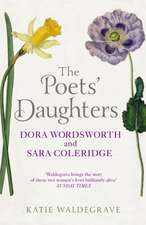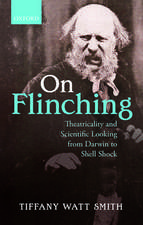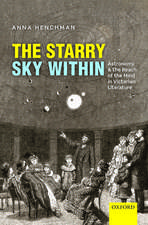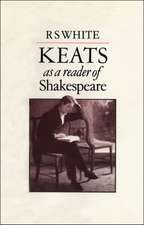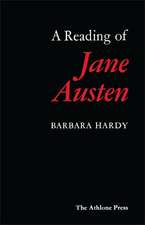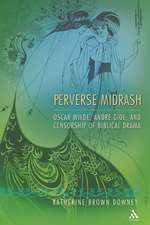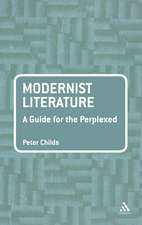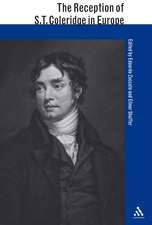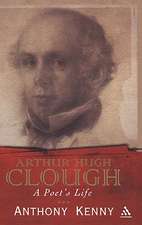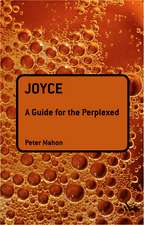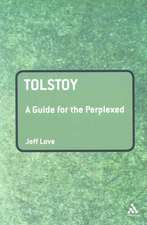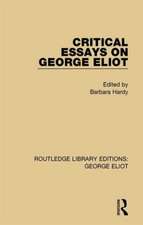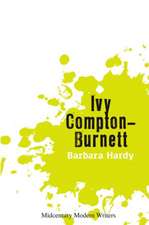George Eliot: A Critic's Biography: Writers Lives
Autor Professor Barbara Hardyen Limba Engleză Paperback – 8 oct 2006
| Toate formatele și edițiile | Preț | Express |
|---|---|---|
| Paperback (1) | 162.45 lei 43-57 zile | |
| Bloomsbury Publishing – 8 oct 2006 | 162.45 lei 43-57 zile | |
| Hardback (1) | 769.71 lei 43-57 zile | |
| Bloomsbury Publishing – 8 oct 2006 | 769.71 lei 43-57 zile |
Preț: 162.45 lei
Preț vechi: 203.76 lei
-20% Nou
Puncte Express: 244
Preț estimativ în valută:
31.09€ • 32.54$ • 25.87£
31.09€ • 32.54$ • 25.87£
Carte tipărită la comandă
Livrare economică 31 martie-14 aprilie
Preluare comenzi: 021 569.72.76
Specificații
ISBN-13: 9780826485168
ISBN-10: 0826485162
Pagini: 192
Dimensiuni: 129 x 198 x 14 mm
Greutate: 0.16 kg
Editura: Bloomsbury Publishing
Colecția Continuum
Seria Writers Lives
Locul publicării:London, United Kingdom
ISBN-10: 0826485162
Pagini: 192
Dimensiuni: 129 x 198 x 14 mm
Greutate: 0.16 kg
Editura: Bloomsbury Publishing
Colecția Continuum
Seria Writers Lives
Locul publicării:London, United Kingdom
Caracteristici
Combines biographical insight with sensitive close readings of Eliot's novels, offering fascinating links between her life and fiction
Cuprins
Preface and Acknowledgements
References and Abbreviations
An Outline of George Eliot's Life and Writings
1. Scenes of Family Life
2. Home, Travel and a Need for Foreignness
3. Three or Four Love Stories
4. Acquaintances and Friends
5. Illness and Death
6., Objects, Words and Metaphors
Index
References and Abbreviations
An Outline of George Eliot's Life and Writings
1. Scenes of Family Life
2. Home, Travel and a Need for Foreignness
3. Three or Four Love Stories
4. Acquaintances and Friends
5. Illness and Death
6., Objects, Words and Metaphors
Index
Recenzii
"Hardy combines an examination of Eliot's life with an analysis of the author's works. The six chapters are concerned with Eliot's family life, her travels in England and abroad, the men she loved, her acquaintances and friends, her use of images evoking illness and death, and how certain objects, words, and metaphors are repeated throughout her novels and letters. There is also a useful outline of Eliot's life and writing at the beginning of the book. Hardy's insights will be especially useful for readers very familiar with most if not all of Eliot's fiction, as the critic goes from book to book in her pursuit of the connection between biography and the creation of the works. Recommended." - Morris Hounion, CUNY, for Library Journal, 2006
"A self-declared, 'rever[sal] of conventional critical biography' ... this book is an incisive and deeply absorbing meditation on the life and work of a woman with a preternatural sensitivity to the shaping effect of form." - Rhian Williams, British Association for Victorian Studies
Reference to "A new biography of Victorian novelist George Eliot" and author's name. South Wales Evening Post (Swansea)
"...Hardy has been Eliot's critic for nearly half a century - indeed, the book is subtitled A critic's biography - yet she flouts convention, declaring her book an "anti-biography"...examples of how Eliot recast her relatives and friends as characters, [is] rendered here with tact and insight. What [this book] it arrives at is a glimpse of Eliot's consciousness. Hardy attains this not by distilling the novelist's ideas and narratives, but by delving into Eliot's mind, often through her rapt, uncompromised letters. Being George Eliot, it seems is a complicated and surprisingly extreme affair..." - Esther Schor, TLS, October 12, 2007
"We come away from this biography with a new, full sense of Eliot, or at least with a new sense of a possible Eliot, more intimately known...She writes with the authority of someone who knows all the texts intimately, who cares passionately both about those texts and about the life of a real woman who took the name George Eliot. This is a biography that only a major critic and scholar could have produced. One might argue about details or wrestle about method, but one cannot resist either the textual authority of its arguments or the fascinating and entirely embodied woman, George Eliot."-George Levine, Victorian Studies, Autumn 2007
"Barbara Hardy's earliest important essay on Eliot was published over a half a century ago ("Moment of Disenchantment in George Eliot's Novels," Review of English Studies 19, July 1954: 256-64). Her new George Eliot: A Critic's Biography is the first volume of Continuum's "Writer's Lives" series which prescribes a treatment of "life and works." This approach might be tedious, but not by Hardy. She can assume the case for Eliot's art has long been since made, a lion's share of it by Hardy herself (Novels of George Eliot: A Study in Form (1959), and in The Appropriate Form (1964)). Thus, her deliberately specifying title, "A Critic's Biography," certifies that the art and life intersections Hardy chooses are important ones to Eliot's art. Offered as an introduction to its subject (the intention of the Continuum series), it will serve more the pleasure of readers who no longer need an introduction to Eliot." - John R. Pfeiffer, George Eliot-George Henry Lewes Studies, September 2008
Primarily of interest as an accessible guide to readers and scholars who are relatively new to Eliot, Hardy's study offers a comprehensive, reliable and individual perspective on a major figure in nineteenth-century prose.
"A self-declared, 'rever[sal] of conventional critical biography' ... this book is an incisive and deeply absorbing meditation on the life and work of a woman with a preternatural sensitivity to the shaping effect of form." - Rhian Williams, British Association for Victorian Studies
Reference to "A new biography of Victorian novelist George Eliot" and author's name. South Wales Evening Post (Swansea)
"...Hardy has been Eliot's critic for nearly half a century - indeed, the book is subtitled A critic's biography - yet she flouts convention, declaring her book an "anti-biography"...examples of how Eliot recast her relatives and friends as characters, [is] rendered here with tact and insight. What [this book] it arrives at is a glimpse of Eliot's consciousness. Hardy attains this not by distilling the novelist's ideas and narratives, but by delving into Eliot's mind, often through her rapt, uncompromised letters. Being George Eliot, it seems is a complicated and surprisingly extreme affair..." - Esther Schor, TLS, October 12, 2007
"We come away from this biography with a new, full sense of Eliot, or at least with a new sense of a possible Eliot, more intimately known...She writes with the authority of someone who knows all the texts intimately, who cares passionately both about those texts and about the life of a real woman who took the name George Eliot. This is a biography that only a major critic and scholar could have produced. One might argue about details or wrestle about method, but one cannot resist either the textual authority of its arguments or the fascinating and entirely embodied woman, George Eliot."-George Levine, Victorian Studies, Autumn 2007
"Barbara Hardy's earliest important essay on Eliot was published over a half a century ago ("Moment of Disenchantment in George Eliot's Novels," Review of English Studies 19, July 1954: 256-64). Her new George Eliot: A Critic's Biography is the first volume of Continuum's "Writer's Lives" series which prescribes a treatment of "life and works." This approach might be tedious, but not by Hardy. She can assume the case for Eliot's art has long been since made, a lion's share of it by Hardy herself (Novels of George Eliot: A Study in Form (1959), and in The Appropriate Form (1964)). Thus, her deliberately specifying title, "A Critic's Biography," certifies that the art and life intersections Hardy chooses are important ones to Eliot's art. Offered as an introduction to its subject (the intention of the Continuum series), it will serve more the pleasure of readers who no longer need an introduction to Eliot." - John R. Pfeiffer, George Eliot-George Henry Lewes Studies, September 2008
Primarily of interest as an accessible guide to readers and scholars who are relatively new to Eliot, Hardy's study offers a comprehensive, reliable and individual perspective on a major figure in nineteenth-century prose.





